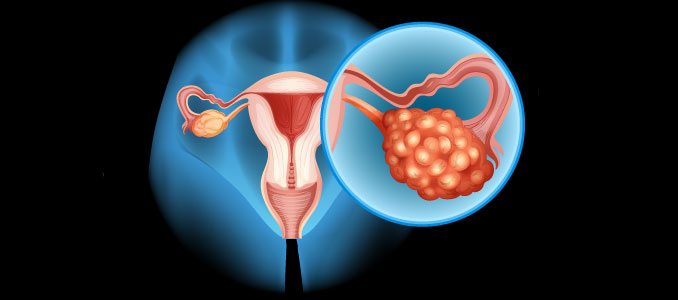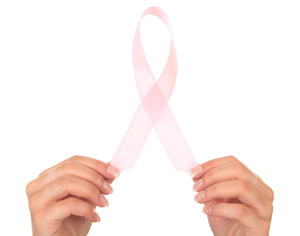Hormone Replacement Therapy For Ovarian Cancer
Research has favored hormone replacement therapy for ovarian cancer. Studies have been published giving a positive outlook on the use of doctor prescribed hormones to protect the body from pathogens that can cause ovarian cancer. These hormones that do the job are mostly gonadotropin-releasing hormones and progesterone.
Sometimes used in conjunction with other more conventional treatment, hormone therapy for ovarian cancer aims to attack the cancer. By using progesterone hormone at just the right amount, for an example, this often helps to lower estrogen levels in the body. This will then keep ovarian cancer cells from growing because they cannot grow without the estrogen hormones they need.
How Does Hormone Therapy For Ovarian Cancer Work?
What is hormone therapy for ovarian cancer? Hormone therapy for ovarian cancer works by slowing down or stopping cancer cells from growing. Treatment usually involves taking prescribed hormone medications to prevent existing cancer cells from getting the certain hormones they need to continue growing and reproducing.
More specifically, by taking prescribed progesterone, this will stop estrogen from being produced. Cancer cells thrive from estrogen. This needs to be put to a stop in order to cease cancer growth. Many professionals will combine the innovative hormone therapy for recurrent ovarian cancer with the traditional treatments of chemotherapy and/or radiation therapy.
What Do Journals Say About Hormone Therapy Treatment For Ovarian Cancer?
Many journals have published articles advocating for the use of hormone therapy for ovarian cancer. Patients have benefitted from this kind of treatment either alone or together with conventional cancer treatment. Here is what a handful of journal articles had to say:
- The International Journal of Gynecological Cancer
The International Journal of Gynecological Cancer published a study that said hormone therapy for this kind of disease showed as effective and had minimal side effects. This information proved very encouraging for treating ovarian cancer.
- NIH Medline
According to NIH Medline, ovarian cancer is the number one cause of death from gynecologic cancer or cancer of the female reproductive system. Studies that have been conducted over the years regarding hormone therapy for ovarian cancer have proven positive for stopping cancer cell growth.
- Journal of Clinical Oncology
In regards to hormone replacement therapy after ovarian cancer surgery, a study published in the Journal of Clinical Oncology demonstrated that treatment had beneficial effects on survival. In other words, survival rates were high after hormone therapy was administered (with medical supervision) to women who had ovarian cancer treatment.
The same journal shared a study that proved overall survival being significantly improved in patients who went through hormone therapy for epithelial ovarian cancer. Many cancer researchers are convinced that ovarian cancer can be very responsive to hormonal therapy. The reason is because studies have proven it helps to reduce the amount of estrogen (the hormone that cancer cells feed off of) that is produced in the body.
- Clinical Cancer Research
A researcher in charge of a large study published in Clinical Cancer Research on the effects of hormone therapy for ovarian cancer shared that this therapy effectively “starves the ovarian cancer of estrogen and inhibits growth” of the cancer cells. The scientist shared that hormone therapy may never be able to replace chemotherapy when it is necessary, but it is a great adjunct to helping rid of cancer cells faster and that it saves more lives.
- Clinical Cancer Research
A study published in Clinical Cancer Research demonstrated the positive effects of hormone therapy in prolonging the lives of many women with ovarian cancer. In addition, it has also helped some patients avoid chemotherapy.
“When the body’s estrogen supply is turned off or blocked, cancer cells cannot grow,” say researchers.
Scientists believe ovarian cancers are very sensitive to estrogen and by blocking the estrogen supply to the cancer cells, they die and inhibit the spread of the disease.
Are There Side Effects Of Hormone Therapy For Ovarian Cancer
As with any kind of treatment, including hormone therapy for ovarian cancer, side effects can occur.
They usually will happen if a patient is taking the incorrect dosage of medication or if he or she is not following their prescription and treatment plan exactly as it was written for them.
This is why medical supervision is necessary with hormone treatment. It is also the reason any honorable hormone clinic will never conduct treatment with patients without mandating medical monitoring.
Here are just some of themost common possible side effects of hormone therapy for ovarian cancer:
- Fatigue
- Loss of energy
- Constipation
- Diarrhea
- Nausea
- Vomiting
- Stomach cramps
- Rash
- Hives
- Mouth sores
- Jaundice
- Mental distress (depression or anxiety)
The best way to avoid these possible side effects is by never straying from your treatment plan. Take your medication exactly as prescribed. If anything out of the ordinary does occur, you are to call your clinical advisor immediately. Even something small should be reported because if it is ignored, there is a chance that it can become worse.




